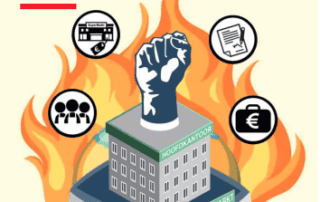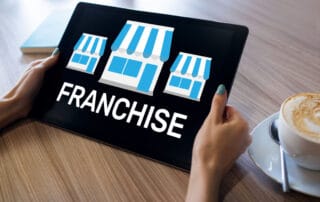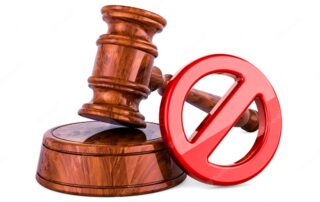Intellectual property rights
In general, the nature of a franchise relationship implies that, on the basis of a franchise agreement, various intellectual property rights are given to the franchisee by the franchisor during the term of the agreement. Examples include the formula name, logos, slogans and house styles, to which the franchisee would not be entitled without his relationship with the franchisor. In many cases, those intellectual property rights are specified in the franchise agreement itself or in an appendix to it.
The situation described above is based on the assumption that the franchisor in question: a. owns or is authorized to dispose of the aforementioned intellectual property rights and b. is authorized to license it to the relevant franchisee. In most cases these questions can be answered in the affirmative and no further problems are to be expected on this point. In practice, however, there are situations in which one or both questions cannot be answered in a confirmed manner, which may lead to the franchisee in question making unauthorized use of names, logos and corporate identities and the like. The consequence of this may be that a third party, who is authorized to use it, successfully institutes an injunction against the franchisee, possibly reinforced with a claim for damages. Another consequence may be that a third party, whether or not expressly authorized to do so, will also make use of those intellectual property rights, thereby competing the franchisee, as well as the entire franchise organization, in an unexpected and improper manner without the affected franchisee or organization can do something about it.
In order to prevent problems such as those outlined above, it is the franchisor’s responsibility to ensure at all times that all intellectual property rights associated with the formula are adequately filed and protected with the appropriate authorities, such as the Benelux Trademark Office. This is all the more pressing in the case of an internationally operating franchise organization: the franchisor in the Netherlands must then ensure that he is fully authorized to use the foreign formula features in the Netherlands and that they are adequately registered in the Netherlands and abroad. and protected.
A franchisee, in turn, would do well to ensure, if possible before entering into a contract, that his future franchisor is actually authorized and able to provide him with an adequate right to use the intellectual property rights associated with the formula. As follows from the above, this is all the more important if there is a foreign formula that is also operational in the Netherlands. A franchisee would be well advised to request inspection of the actual registration documents of the formula-related characteristics before entering into a contract, if possible accompanied by the registration number and the like. If this registration has been made in accordance with the rules of the art, the franchisor concerned can simply make such matters available for inspection. It is even better, as indicated at the beginning, if this information is added to the franchise agreement as an appendix.
As always, checking beforehand can prevent problems afterwards. The same applies here, both for franchisee and franchisor.
Ludwig & Van Dam franchise attorneys, franchise legal advice

Other messages
Post non-compete clause in hard franchising
The summary proceedings judge of the Amsterdam District Court ...
Does an agreed rent indexation always apply?
Many entrepreneurs were confronted with a significant rent increase ...
Ludwig & Van Dam in Distrifood Magazine about the Franchise Act
Interview about the current obstacles for independent supermarket entrepreneurs and ...
No franchise agreement, but membership of a cooperative
In certain cases, agreements made in a franchise agreement may ...
Post prohibition of competition and transfer of the business to the life partner
A franchisee is a company. The franchisee and the private ...
Not a franchise agreement, but a general cooperation agreement
The Franchise Act offers franchisees various protective provisions. Earlier, the ...







